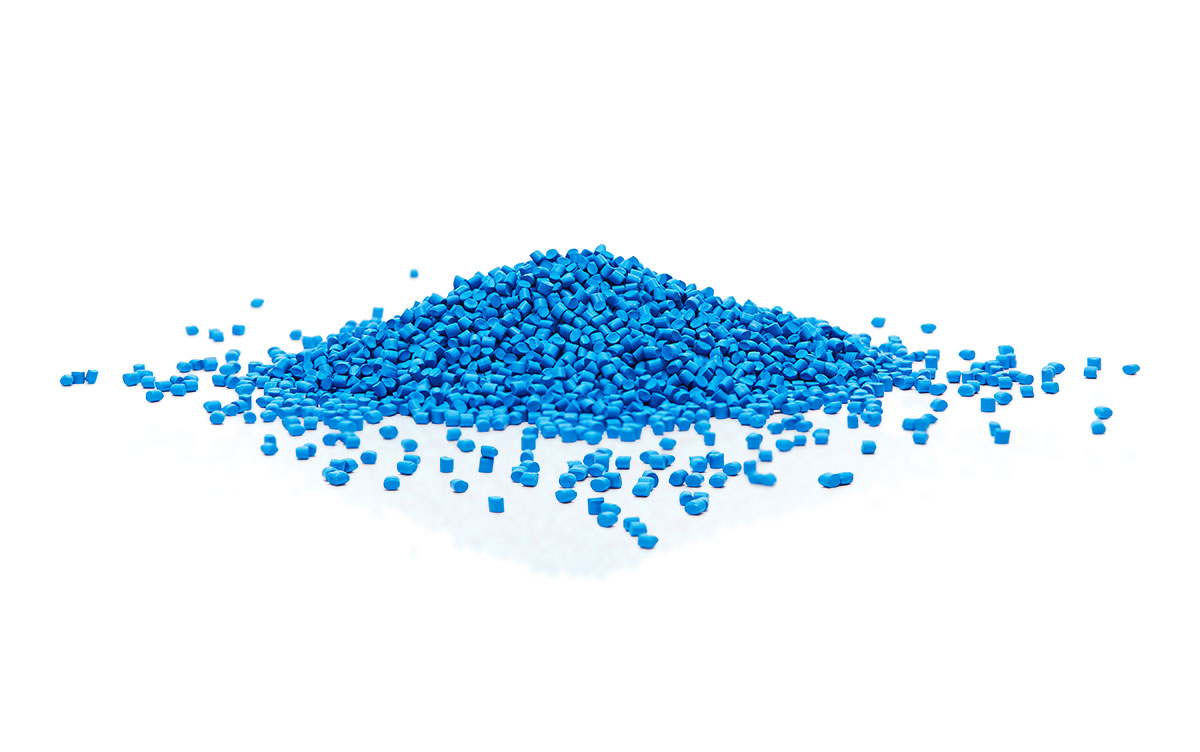Pneumatic Conveying Elbows for the Plastics Industry
Using the right elbows for the pneumatic conveying of plastics is critical in order to minimize challenges with abrasive wear, streamers, build-up and color contamination. These challenges can be costly in terms of equipment, time, resources and budget – something we’d all rather avoid where possible!
At Progressive Products, we aim to solve your challenges of frequent elbow wear, material degradation and associated time and budget costs, while increasing your plant’s efficiency.

Plastics Companies Who Use
Pneumatic Conveying Systems
Plastics companies using pneumatic conveying systems often have large and heavy equipment, complex infrastructure which cannot be changed, and rigorous processes.
Many plastics industry companies rely on pneumatic conveying systems. These types of companies include those which manufacture:
PVC pipes • Vinyl siding • Vinyl doors and windows • Vinyl fencing
• Composite products which are used to make decking and roofing • Recycled plastic
What Types of Materials Are
Used in Plastics Industry Pneumatic Conveying?
Quite clearly, the materials used are different types of plastic. Whether a plastics company uses dry bulk pneumatic conveying systems or not depends on their manufacturing process.
That means a company will either melt plastic pellets – in which case they’ll normally use a dry bulk pneumatic conveying system to move the pellets around – or they’ll mold plastic into its final form on site. If that’s the case, the plastics company will usually buy the resin and compound (or buy the resin and make the compound) to make the product, and they won’t use pellets. In plastic recycling, ground recycled materials is used.
Conveyed materials in the plastic industry come in different forms, including:
Plastic pellets • Fiberglass-filled pellets • Plastic compounds • Resins
Plastic regrind chips • Plastic filler materials (such as Calcium Carbonate, saw dust, or rock)
Challenges the Plastics Industry Has with Pneumatic Conveying Elbows
Streamers (a.k.a Angle Hair)
The biggest challenge for pneumatic conveying pellets in the plastics industry is the formation of streamers – also known as angel hair. This is caused by the melting of plastic pellets through friction.
Color Contamination, Flaws & Blocked Pipes
Streamers can then lead to a host of other challenges, such as color contamination, product flaws, and blocked pipes. In turn this means maintenance costs, system downtime, and lost resources.
Abrasive Wear
As with many other industries, pneumatic conveying in the plastics industry has challenges with abrasive wear on elbows, but generally only additives, such as fiberglass or calcium carbonate, or abrasive powders, like plastic resin, are used.
How Progressive Products Solves the Plastics
Industry’s Pneumatic Conveying Elbow Challenges
With Progressive Products, your challenges with pneumatic conveying elbows have several solutions. We want you to have the elbows that are right for your system and needs, and we’ll talk through your requirements in detail before we recommend the right elbow for you.
With Progressive Products’ elbows you can save time and money because we’ll help you get the proper application with the proper solution for best results.
- For a plastics manufacturer, we may suggest specialty elbows which can help minimize the formation of streamers or reduce wear. For streamers, this could mean roughening up the inside surface of a standard elbow, so the plastic doesn’t slide across the surface and therefore won’t produce as much heat from friction. It could also mean using a special fitting elbow. For abrasion, we may also suggest:
- Ceram-Back® elbows: The ceramic compound jacket wrapped across the back of these elbows is stronger than the material underneath it. As the plastic product wears through the metal pipe, it hits the ceramic which is harder and doesn’t wear down as quickly.
- Tile options: especially for plastic products that include additives like fiberglass or plastics that product impact like plastic regrind
Increasing the Efficiency of
Your Pneumatic Conveying Elbows
What Progressive Products Does Differently
When we speak to a new customer, we take them through an in-depth consultation process. We’ll ask questions about your current system, your requirements, how long the elbows you currently use last, what concerns you have, what you’re manufacturing, how much you’re conveying, the size of your product, temperature, velocity, psi – and much more. We’ll also look for ways to increase efficiencies in your system and establish what color contamination, blockage, and angel hair challenges you may have.
By going into this level of detail, we can make targeted recommendations for the elbows that are right for you. We can provide information and suggestions for specialty elbows, and with a thorough understanding of your requirements, we can save you unplanned system downtime, cost and resource.
